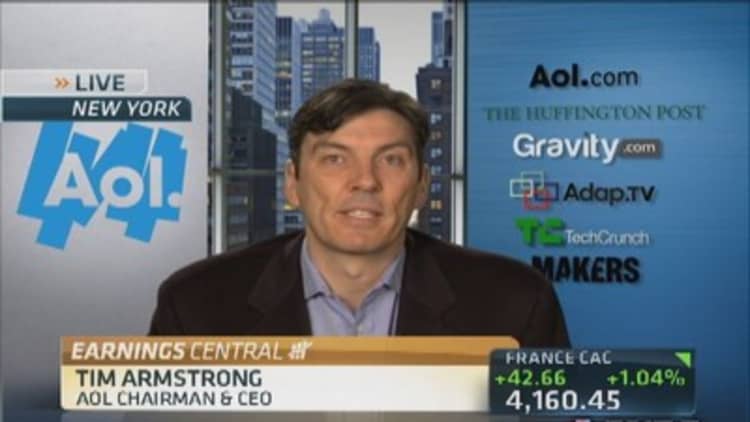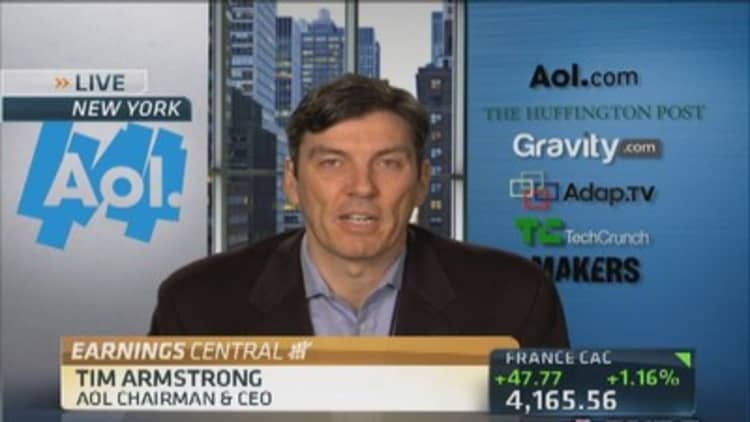
AOL is making a change in the way it distributes 401(k) matching contributions to employees because Obamacare has resulted in an "additional $7.1 million expense for us as a company," Chairman and CEO Tim Armstrong told CNBC on Thursday, following the company's release of better-than expected earnings and revenues.
Starting in 2014, AOL will distribute the 50 percent company match on up to 6 percent of employees' pre-tax income in a lump sum after the end of the year, instead of paying the benefit throughout the year as it had done previously.
That means workers who leave AOL before Dec. 31 won't get the year's company match at all.
"For employees leaving to go to other employers, not matching those programs was probably the last thing on the list for us in terms of employee benefits that we wanted to keep," Armstrong explained in a "Squawk Box" interview. "I have a townhall meeting today [Thursday] with all the employees and I'm going to bring this up and talk about it."
He said the company had to make this difficult decision, so current employees won't be asked to cover new costs related to the Affordable Care Act.

On Thursday morning, the digital media and entertainment company reported a better-than-expected 13 percent rise in quarterly revenue as its advertising revenue rose, especially from video.
AOL's total revenue rose to $679 million in the fourth quarter ended Dec. 31 from $599.5 million a year earlier.
Analysts on average had expected revenue of $655.8 million, according to Thomson Reuters I/B/E/S.
AOL earned 64 cents a share excluding one-time items in the fourth quarter—beating the Wall Street consensus estimate by four cents.
AOL, which owns the Huffington Post news website and TechCrunch blog, reported a 23 percent rise in advertising revenue due to higher sales of premium ad formats such as video.
——By CNBC's Matthew J. Belvedere. Follow him on Twitter @Matt_SquawkCNBC. Reuters contributed to this report.


